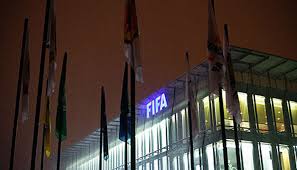By Andrew Warshaw in Marrakesh
December 18 – The fallout from Michael Garcia’s resignation as FIFA’s chief investigator continued apace today as world football’s governing body met to consider their next move amid collective shock and surprise among the organisation’s top brass.
But if anyone thought Garcia would go quietly after being rebuffed at seemingly every turn in his attempt to have his way over publication of his 2018 and 20122 World Cup corruption report, they were wrong as his damning statement about the way FIFA conducts itself starkly illustrated.
When Garcia was appointed in 2012 as a key part of FIFA’s reform process, the idea was to root out malpractise and present FIFA in a new, honest, transparent, light. To shake off the tarnished image and dysunfunctional reputation by doing the right thing. To create a fresh atmosphere of trust after years of scandal.
Yet the American attorney’s decision to quit has had just the opposite effect as regards public image, raising more questions over FIFA and serving to plunge the organisation back into the mire with its credibility, rightly or wrongly, in tatters.
The reformists amongst FIFA’s executive committee members could only throw up their collective arms in despair. “I think this is emblematic of some of the challenges we have at FIFA,” said Jordan’s FIFA vice-president Prince Ali bin Al-Hussein. “It is a bit of a shock for me personally and for others to see he has responded and he must have done it for a reason. That reason I’m not sure of. It’s not an issue of World Cups, I think it’s an issue of the system itself within FIFA. I have tremendous respect for people who take principled positions.”
US Soccer president Sunil Gulati and FIFA presidential challenger Jerome Champagne expressed similar language. Gulati was a key member of FIFA’s independent governance committee before being elected to the executive committee. “I am very disappointed that Mr Garcia felt he had no alternative but to resign. It’s certainly a step backward in the process of trying to bring positive change to FIFA,” he said.
Champagne, who worked for FIFA in several senior roles for over a decade before being ousted in January 2010, also described Garcia’s departure as “a backward step.”
“We needed to know what happened before and after the December 2, 2010, vote. Today more than ever we need to know,” said the Frenchman. “When will the facts be known fully, transparently and above all without suspicion? When will we be able to start rebuilding FIFA’s image?”
It’s a sentiment many share, even among some of the veteran members. “I’m totally shocked and disappointed at the resignation of Michael Garcia,” said Britain’s outgoing FIFA vice-president Jim Boyce. “I have said on many, many occasions, the ethics committee was the most important committee formed by FIFA following developments in 2011.”
Yet now look at where it is – broken, battered and bruised.
One interesting aspect of Garcia’s statement that has gone largely unreported is that he was apparently reported to the FIFA Disciplinary Committee “for allegedly violating the Code of Ethics through my public comments, namely, my public request that the Executive Committee authorize appropriate publication of the Report.”
Why wasn’t that made public before? That will surely be one of many hard-hitting questions put to Blatter at a news conference in Marrakesh on Friday, at the conclusion of the year’s final executive committee session that was always going to be a tasty affair but has now taken on extra spice.
From Blatter’s standpoint, another unanswered question perhaps is why Garcia had to take such a dramatic terminal step. Was it because he was trying to save his reputation at home in the United States and could not be seen to be losing a complex legal battle?
Or is there genuine incriminatory evidence of wrongdoing in his World Cup report that was deliberately omitted by German ethics judge Hans-Joachim Eckert in his 42-page précis of Garcia’s full 430-page dossier? After all, Garcia protested, didn’t he, that Eckert’s version contained “numerous materially incomplete and erroneous representations of facts and conclusions,”
It seems unthinkable that Eckert, who effectively cleared Russia and Qatar of any malpractise, would have taken the risk of deliberately leaving out such vital information and, as a result, leave himself open to claims of a cover-up. The German judge is vastly experienced and Garcia’s accusations of a lack of independence will doubtless rankle – enough to trigger a response? Wherever the truth lies, Garcia has now effectively disowned his one-time colleague – and FIFA as a whole.
The next stage in this tawdry and unsavoury affair takes place tomorrow when, ironically, the executive committee is expected to vote on whether to publish Garcia’s evidence, if that’s what it really is – or at least how much of it. And so the attention shifts to Domenico Scala, chairman of FIFA’s audit and compliance committee, and his recommendations following advice from his army of lawyers who have been pouring over Garcia’s report.
But the man who led the gathering of the evidence decided couldn’t wait for that. The last straw in his increasing irritation with the way two years of work had been handled was the forthright rejection of his protest against Eckert’s summary of the file he had provided.
Hence his blistering attack. And hence why FIFA’s numerous attempts to bring closure to the whole World Cup corruption affair seems further away than ever. How many times have we heard that before?
Contact the writer of this story at moc.l1745177370labto1745177370ofdlr1745177370owedi1745177370sni@w1745177370ahsra1745177370w.wer1745177370dna1745177370

